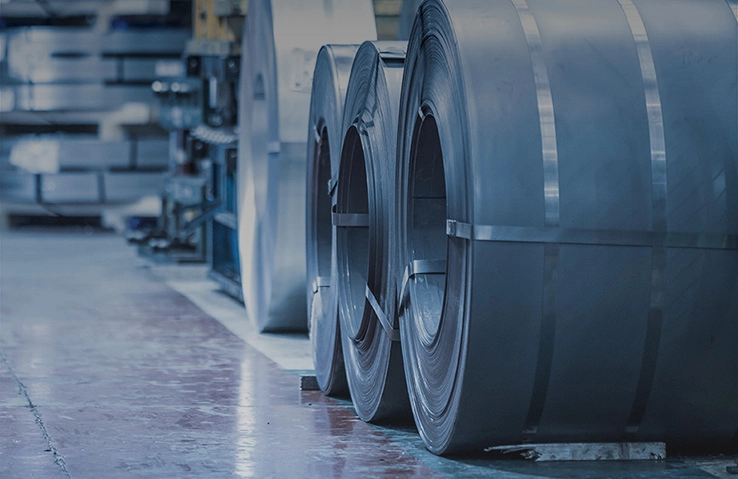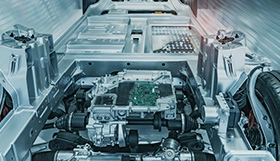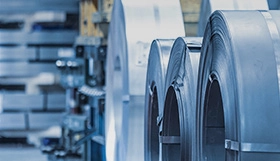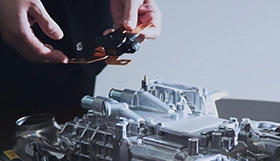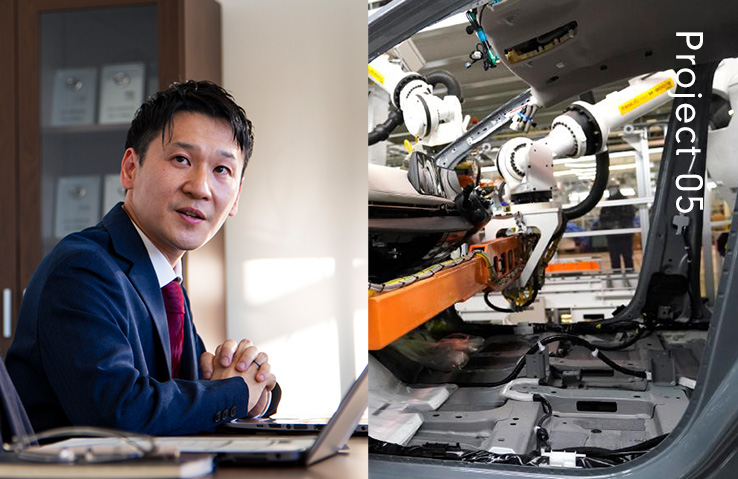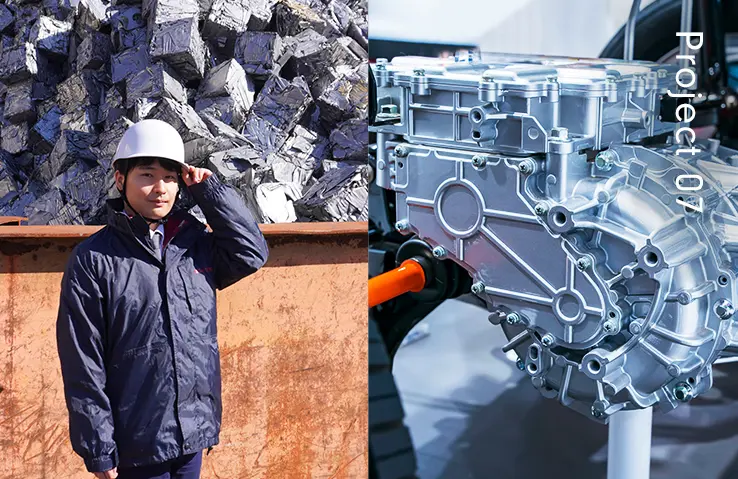Harnessing EVs to change the future: a project looking to prevent disaster and solve environmental issues
Yosuke Koike, Global Business Promotion Office (BPO)
Kazumi Furukawa, Fuel and Petroleum Products team, Chemicals and Energy Group, Global Materials Division
- #CarbonNeutral
- #Environment
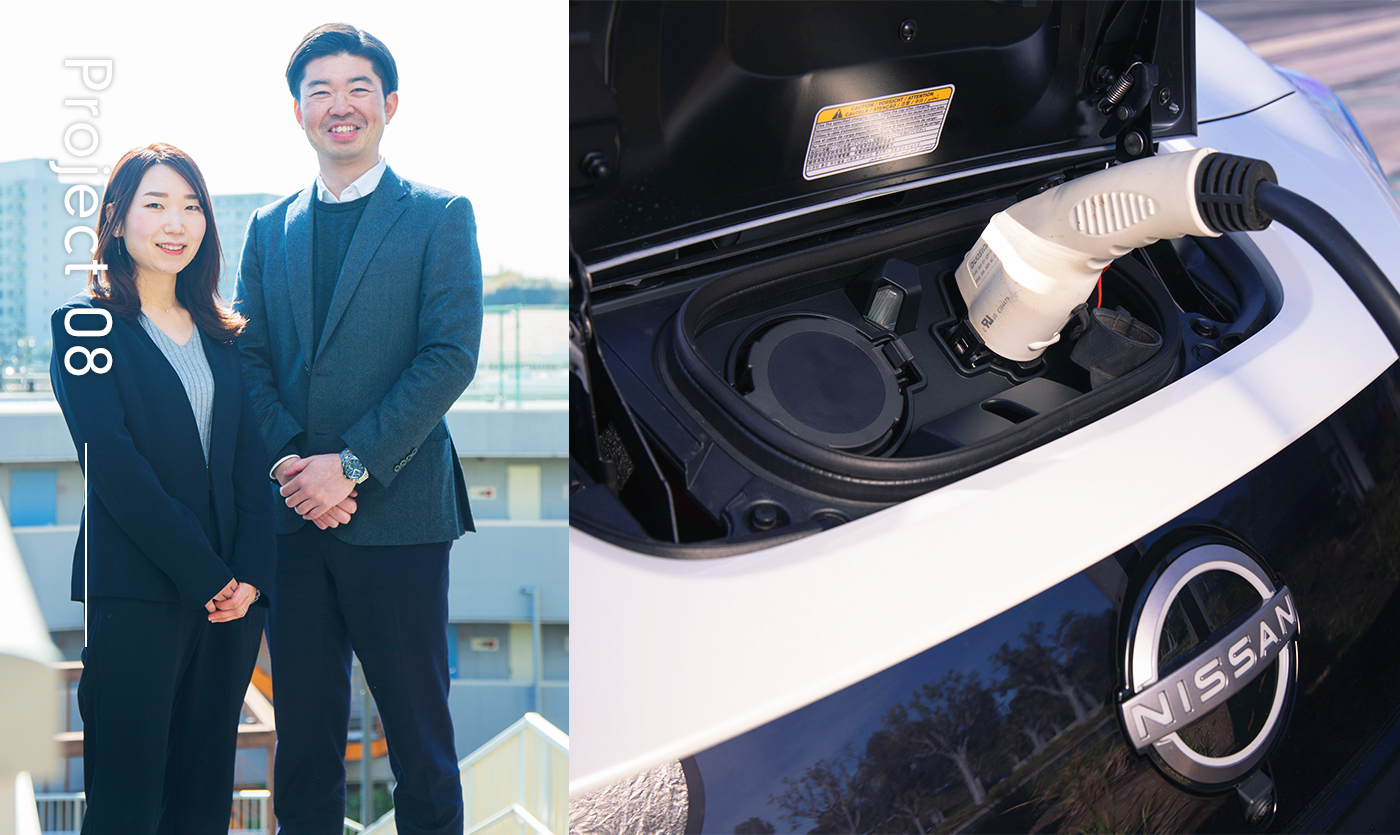
On the path to becoming carbon neutral, the Nissan ecosystem will deal not just in EVs but in EV peripherals too
As we seek more ways to reduce our climate-warming CO2 emissions, global demand for electric vehicles (EVs) is on the rise. That is why the market for chargers and other EV peripherals (1) is set to grow.
With this market in mind, Nissan, Japan’s leading EV manufacturer, is focused not just on selling cars but EV-related equipment too. The EV Peripherals Project was launched to help achieve carbon neutrality through synergies between EVs and the equipment they require. (Furukawa)
-
※Note 1.What are EV peripherals?
These include regular EV chargers, fast chargers, and V2H (Vehicle to Home) and V2L (Vehicle to Load) systems.

You could say that our EV Peripherals Project is one venture borne of the organizational restructuring at Nissan Trading (NITCO).
In 2022, NITCO established the BPO (Business Promotion Office) as a team dedicated to developing new business. As a result of clarifying the roles of each part of the NITCO organization when discovering new business seeds through their daily activities – the BPO team developing proposals for commercialization and the Headquarters team then driving projects forward – NITCO is now positioned to aggressively pursue new business initiatives. (Koike)
This project brings together Nissan, NITCO and Nissan dealerships with the aim of setting up the right environment to promote and sell EV peripherals to customers who have purchased an EV. NITCO BPO takes care of proposal development including planning and strategy, sales strategy development and training dealers in marketing and promotion. Meanwhile, Headquarters handles practical management matters such as incorporating the feedback from dealerships all over Japan into building new operations or sales support systems. (Koike)


The first challenge is to build relationships with dealerships across Japan
Of the EV peripherals offered by Nissan, the one we are most focused on is V2H (an EV power conditioner). Installing a V2H system allows you to use your EV as a backup power source in case of emergency.
What we want to achieve in the future is an EV-based lifestyle. For example, if you consume electricity generated by solar panels during the day and store any excess power in your EV, then use V2H to supply the electricity stored in your EV to your home at night, you would be able to get by without purchasing electricity from a power company. (Koike)
Japan is still a laggard when it comes to EVs and as of 2024 uptake is under 3%. However, beyond individual customers, recently more and more companies and local governments are switching their vehicle fleets to electric and adopting EV peripherals like V2L so that they can make a contribution to the SDGs and enhance business continuity, for example. There is also increasing interest in V2L and V2H around regions that have experienced disasters.
Against this backdrop, a key activity if we are to effectively market V2H and other EV peripherals is to build relationships with dealerships across Japan as the first stop for our customers.
Depending on the varying functions of EV peripheral products, installation work might be required. There are also various national and local subsidies available, but their complexity often serves to undermine proposals and sales at dealerships. Thus, in our quest to have any problems on the sales floor addressed promptly and politely, we are striving to build relationships with dealers so that they feel able to turn to NITCO straight away when any issues arise in their conversations with customers. (Furukawa)
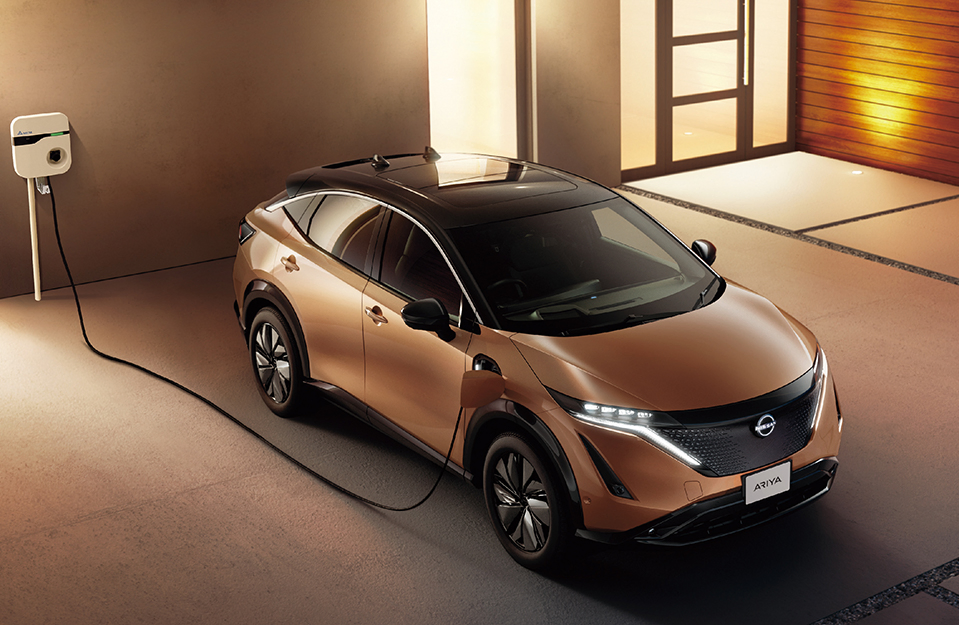

Understanding the needs of the sales frontline
and supporting with both practicality and soft skills
While we are building our relationships with our sales force, for many dealerships, selling EV peripherals is a new initiative and the fact is, at first there were mixed opinions and plenty of concern. Taking these concerns seriously, we visited proactively dealerships to find out about their needs in a courteous manner.
We then ensured those needs were reflected in the strategy, we revised the existing sales support system and rebuilt the operating process, and provided information about competitor trends and subsidies available. Recently we also cooperated with some dealerships to design an original leaflet for use when offering EV peripherals in the showroom, and rolled it out around Japan.

As a result of such patient efforts, recently we have been increasingly hearing comments like, “I am now more confident in making a sales pitch for EV peripherals” and “Through NITCO, I have been able to deepen my knowledge of EV peripherals”.
Now, big electronics firms are beginning to enter the EV peripherals market and we expect that competition is going to get fiercer over the next few years. To prepare for this eventuality, the thing we need to improve most is our sales proposition and forming the base for this has been a key role for NITCO, I feel. (Koike)
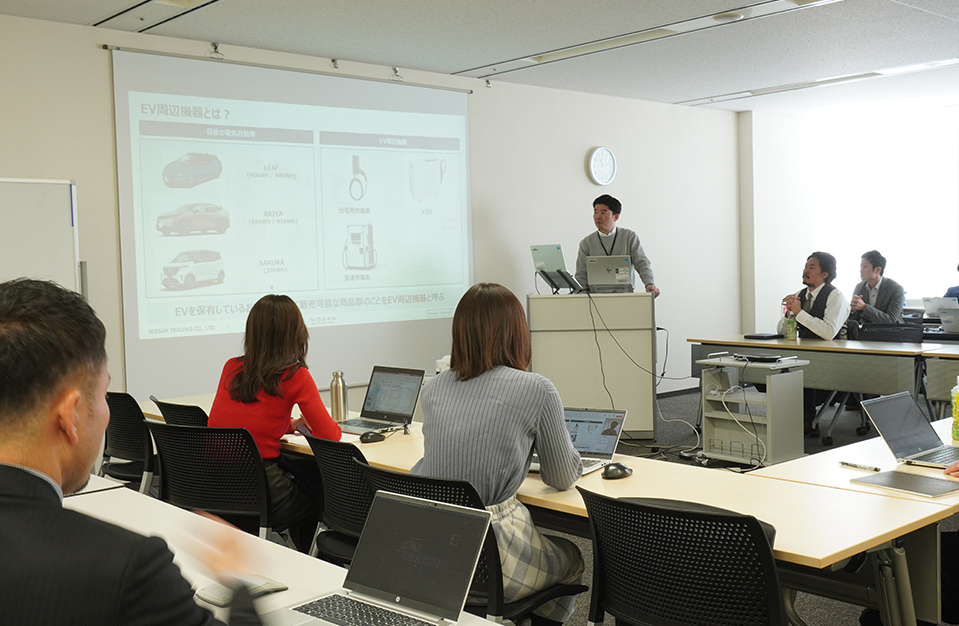
Business that directly addresses societal issues
In this project currently, NITCO mostly plays a behind-the-scenes role in areas such as dealer training and support on EV peripherals. In the future, though, it will be necessary be more aggressive in developing new services and novel ideas.
At BPO, we will harness the knowledge and know-how built up through this project to consider launching new ventures not just in EV peripherals but also related areas such as energy. Through NITCO’s energy business, I hope that we can help to make Japan more resilient to disaster and closer to being a carbon neutral economy. (Koike)
In this day and age, the value of a company does not completely revolve around profits. Investors as well as the youth generation with a view to future employment take seriously the way companies contribute to society through their business activities. EVs and EV peripherals are a business that allows us to directly address the societal challenges of the environment and disasters, which should lead to enhanced corporate value. (Furukawa)
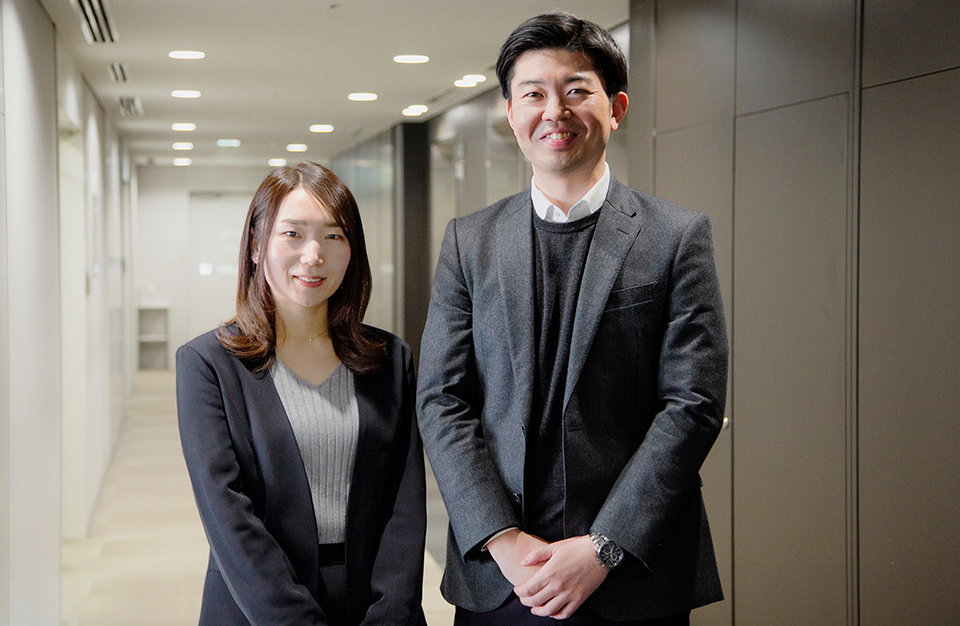

Related Business Divisions
Material Business
For Nissan Motor and for the domestic and overseas plants and parts manufacturers of Alliance Group members Mitsubishi Motors and Renault, Nissan Trading contributes to improving the competitiveness of the Alliance Group and to achieving carbon neutrality through information management, environment-related businesses like material recycling and electricity sales, and through supply of automotive materials like steel products, raw materials, non-ferrous metals, and chemicals.
